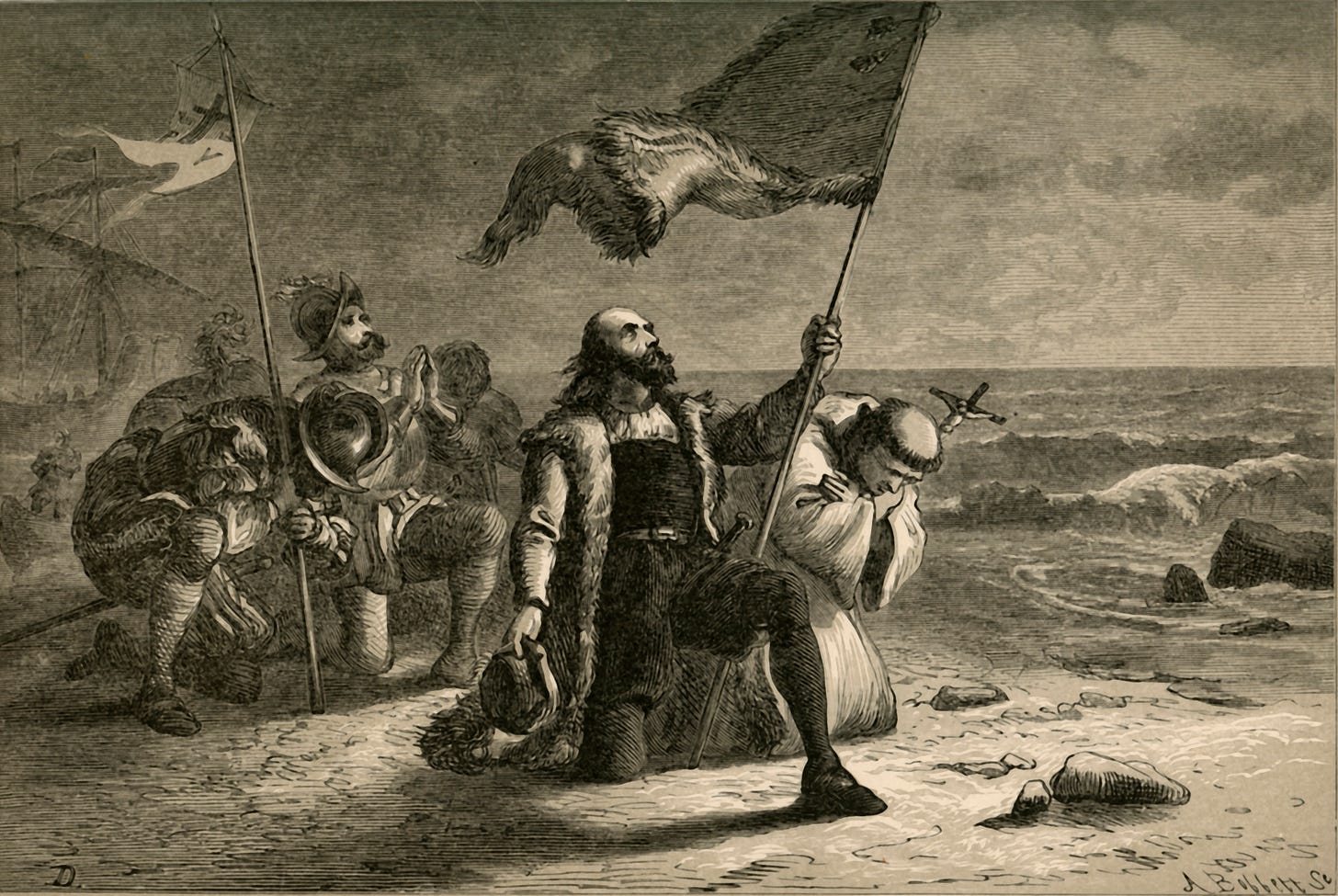7 Reasons Not to Celebrate Christopher Columbus Today
President Trump has vowed to bring Columbus Day ‘back from the ashes.’ But here are some shocking things you may not know about the much-celebrated historical figure behind it.

“The original American hero, a giant of Western civilization, and one of the most gallant and visionary men to ever walk the face of the earth.”
That’s how the White House lauded none other than Christopher Columbus in Donald Trump’s official proclamation to rename the second Monday in October ‘Columbus Day.’
The holiday has become Trump’s latest obsession on his anti-woke warpath, as he declared back in April that he would bring it “back from the ashes.” It’s a direct attack on efforts to rename it “Indigenous Peoples’ Day” in recognition of the natives who suffered at the hands of colonists’ violence.
But while Trump attempts to sanitize the person behind this day, there is no running away from the horrible record Columbus holds. Facts, after all, don’t care about your feelings, right?
So here’s a list of seven shocking things you may not know about Christopher Columbus:
1. Columbus didn’t actually discover anything new
Surprise!
While history textbooks often credit Columbus as the first European to reach or ‘discover’ the Americas, the truth is that it was actually ‘discovered’ by Europeans about 500 years before Columbus even set sail. And that’s even if we entertain the idea that nothing existed until a European ‘discovered’ it.
Around 1,000 CE, Viking explorer Leif Erikson was blown off course en route to Greenland, instead arriving in North America. There, he established a settlement called “Vinland,” which is now recognized as Newfoundland, Canada.
But what about the United States? Well, Columbus never actually set foot on North American soil, with Oct. 12 instead marking the day Columbus landed on an island in the Bahamas.
So much fuss for a guy who didn’t actually ‘discover’ North America.


